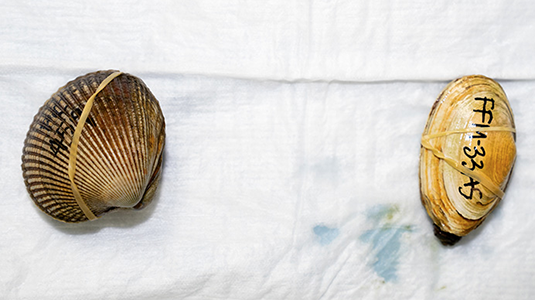||| MIDNIGHT MUTTERINGS by JACKIE BATES |||
I’m feeling curmudgeonly tonight about something that isn’t very important on the big scale. Just something that annoys me more than it should, and has for some years. And here it is: All too often (at least for me) at the end of an encounter in a store, at the bank, on the phone, usually with someone I don’t know, at least not well, that person says to me, ‘Have a nice day.’ It’s innocent, innocuous, not meant to offend, and it is everywhere. Yep, I’ve even said it myself. And cringed as soon as it left my mouth.
I first noticed it almost two decades ago when I was caregiver for someone undergoing a bone marrow transplant. We were in Seattle, living in a small apartment provided for patients and their caregivers by the hospital where the transplants took place. At the time I speak of, the apartments were located in a small building near the clinic. There were shuttles that took us to the hospital, the clinic and even to the grocery store. It was a huge help not to have to deal with traffic and parking. I don’t recall the name of the manager of the apartment building, but I was sure she had a hard job and was trying to do her best to make the stay of very sick people and their caregivers as pleasant as possible. Lots of things went to that end. Movies, a library, lectures, free activities in the community: theater tickets, boat rides on Lake Union, concerts—all donated by the community for caregivers and patients undergoing cancer treatment during the time they were hospitalized and when they were well enough for outpatient treatment. Bone and stem cell recipients from out of town had to be in Seattle for five or six months, and needed convenient housing for that time, and for their caregivers when the patients were in hospital. Definitely a lot of help during a hard time.
As I said, the house manager did what she could to make the place and experience cheerful. She distributed gifts donated by the community: lavish chocolates, fully cooked dinners for Thanksgiving and Christmas, books, magazines, fruit, fresh vegetables and baked goods. The apartments had perfectly serviceable kitchens, but our schedules were crowded and there was little time for complicated cooking. And I don’t think we went to a single play or concert, even with the free tickets given the busy treatment schedules.
Another thing the manager did was put decorations in the elevators of the building along with signs (to help us through our days, I presume). I don’t know what other caregivers and patients thought but I was sorely offended to be confronted with large sparkly letters that spelled out: ‘Have a FABULOUS day!!!’ And ‘Stay POSITIVE, you’ll heal faster,’ and the gentler ‘Have a GREAT day,’ and variations on the theme. These were sick people, going through sometimes painful procedures, not always transplants, but they all had serious cancers requiring complicated hospital treatment. Surely tired, often afraid. Many had poor prognoses. Everybody was away from home, stressed to the max. I wasn’t the sick one, but I did occasionally take down those messages the manager put in the elevators, however well meant. (A bit more about her at the end of this piece.)
Then a decade later, someone close to me died suddenly after a brief (hours) illness, a nine plus hour surgery and a few hours of life after the surgery, only to die at four in the morning. During those hours after the death, dealing, without much help, with things I knew nothing about. (I wasn’t offered a social worker or think to ask for one.) When I finally left the hospital—one I was unfamiliar with—I realized I couldn’t stand to go home. So as soon as the stores opened, I went shopping. I don’t like to shop but it seemed the only thing to do.
I went store to store and bought stuff I didn’t want or need. In each store, when I checked out, the clerk at the register ordered me (or so it felt) ‘to have a nice day.’ I know it meant nothing, that they were probably required to say it, but somehow it felt cruel. One person did ask, ‘How’s your day going so far?’ A variation on the theme I wasn’t prepared for. I’m pretty sure I ruined her day when I said, ‘Not so great,’ and burst into tears without explanation. At that point, I realized I was dangerous and went home where I got online and ordered more stuff. At least online no one insisted that I have a nice day, which was a small comfort. BTW, all that stuff I bought is still in the laundry baskets I dropped it in that day. It’s long past time, but I plan to take it to a donation site really soon. Not sure that anyone really wants a brand new, but probably expired, 23 and Me kit, but I know I don’t.
Now I’m wondering if Shock and Grief Shopping will become a ‘thing’ people post about on social media. Maybe it already is. I can see the advertising now: “Somebody in your life die recently? Treat your grief by buying a lot of stuff at our store. We have grief counselors to help you select things you never knew you wanted and won’t want later. We can wrap it for you so it will be a surprise when you open it months from now when you won’t want it then either. Our sensitive counselors have been trained NOT to tell you to have a fabulous day.”
All I know is that when we tell someone we don’t know to, ‘Have a nice day, we are taking our chances. We know nothing of what that person’s day has already been and what is planned. While I think we can be sure that their response is not likely to be as ridiculously extreme as mine was, just to be on the safe side, it might be better for a cashier to say, ‘Thanks for shopping here.’ Or, ‘Is there anything else l can help you with?’ Or almost anything else. And for the rest of us, we might consider we have no idea what the other person’s day has been so far or what they might know is coming up. Then, ‘Good seeing you,’ might do.
And one last thing about the manager of that building in Seattle: When we returned later in the year for overnight check up appointments, the manager was gone. I asked the shuttle driver who had become a friend during the previous long stay, what had happened to her, he said, ‘Fired.’ When I suggested it might have been for the obnoxious signs in the elevator, he said ‘Nope. Stealing from patient apartments.’
Really? ‘Money and drugs. Lots of pain drugs in those apartments.’ So she wasn’t really doing everything she could to help these poor sick people to have FABULOUS days.
And since you got this far, have a nice day.
**If you are reading theOrcasonian for free, thank your fellow islanders. If you would like to support theOrcasonian CLICK HERE to set your modestly-priced, voluntary subscription. Otherwise, no worries; we’re happy to share with you.**









Jackie – After my father died (winter solstice 1974), I distinctly recall wishing I could wear a black armband to signify my grief. Even as a child I recognized that there really was no way for all the people I came in contact with to realize that MY world had just been irrevocably changed forever and their cheerful, “Have a great day!” was an unwelcome reminder that my days were a whole lot less than great.
In the past, notably the Victorian era, people were expected to wear mourning clothes and if that was not possible, a black armband. These visual reminders helped clue people in that the wearer should perhaps be given a little extra consideration. In many cultures a year of mourning was considered a proper amount of time. Some cultures expected women to wear “widow’s weeds” for at least the year of mourning and some continued to wear only black for the rest of their lives.
I sometimes think that in the long stretch of time prior to this era of readily available antibiotics, vaccines, non-invasive imaging and robotic surgeries, that Life appeared (and was) considerably more tenuous. Throughout time, childhood mortality, across all cultures, consistently averaged about 50%. Between the dangers of pregnancy and birthing, untreatable infections, communicable diseases, and the very real and present dangers of the common “treatments” for those ailments, most people prior to the mid-1900’s had an unfortunate abundance of experience with grief.
The social techniques that evolved to help with that widespread experience of grief were somehow lost as we became ever more adamant that death is the enemy and the role of medicine is to heroically extend every Life by every minute possible, no matter the cost in pain, peace of mind and resources. That has left us with few socially approved grieving rituals beyond a funeral/memorial. After that, you’re on your own! The implication is you should just “pick yourself up, shake it off, and keep going.” While that might be good advice when you are on a wagon train crossing the prairies and there is no time for anything but survival, we (mostly) have the luxury of taking the time needed to come to terms with our loss(es) mindfully and surely we should encourage one another during that difficult time.
I think a black armband might help.
Yes, Ken, was trying to say that perhaps we should assume everybody is wearing a black armband that we can’t see and that we might try to find something else to say that isn’t quite as bossy and assuming and a bit more neutral. I’m certainly not suggesting that we need to have a deep, intrusive conversation with everyone we casually interact with in the course of a day. I just think ‘Have a nice day,’ isn’t the most appropriate comment for the end of every casual interaction. Nor do I suggest that we assume everyone is in mourning, only that we might do well not to automatically to assume anything.
Toxic positivity. It’s incredibly damaging.
Things like this are never easy… and some variation of this is something that none of us will escape.
I have friends who’s dog, a companion for many years, died recently. Upon walking into their shop in town I heard the woman who was leaving somewhat flippantly remark over her shoulder on her way out the door, “Don’t worry, it gets better in time.” “How shallow” I thought to myself. We don’t think.
We ask people without even thinking, “How are you doing?” It’s one of those societal norms, and when one honestly answers “Not to good,” many times people don’t even know how to respond. You can tell who your friends are at moments like this.
VOX– What I wish my friends had said to me after my mom died
https://www.vox.com/first-person/2018/11/20/18104727/friendship-parents-death-grieving
preaching to the choir? See ORACASONIAN Jan. 7 2023 Dr Kuhn Pushed or Jumped